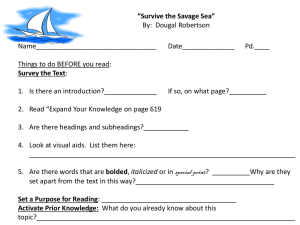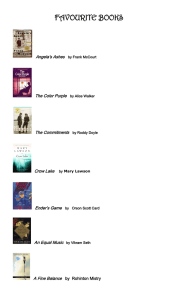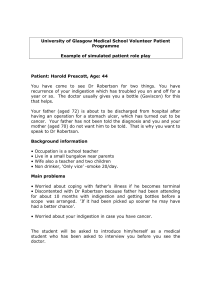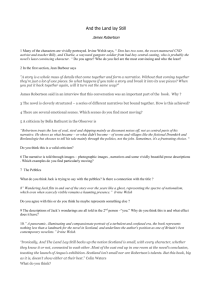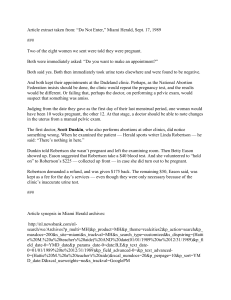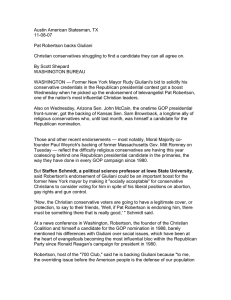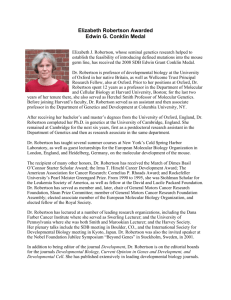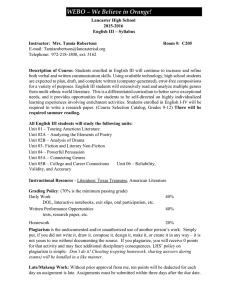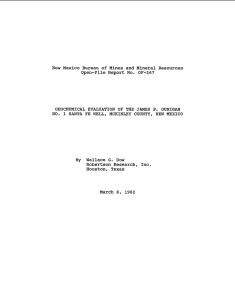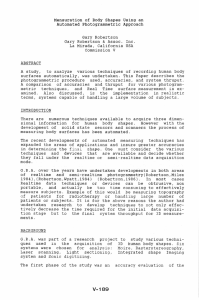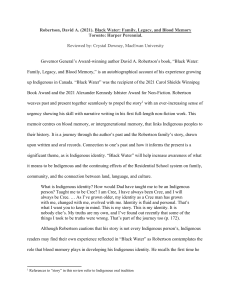Evidence the driving force in judge’s life Kay Robertson
advertisement
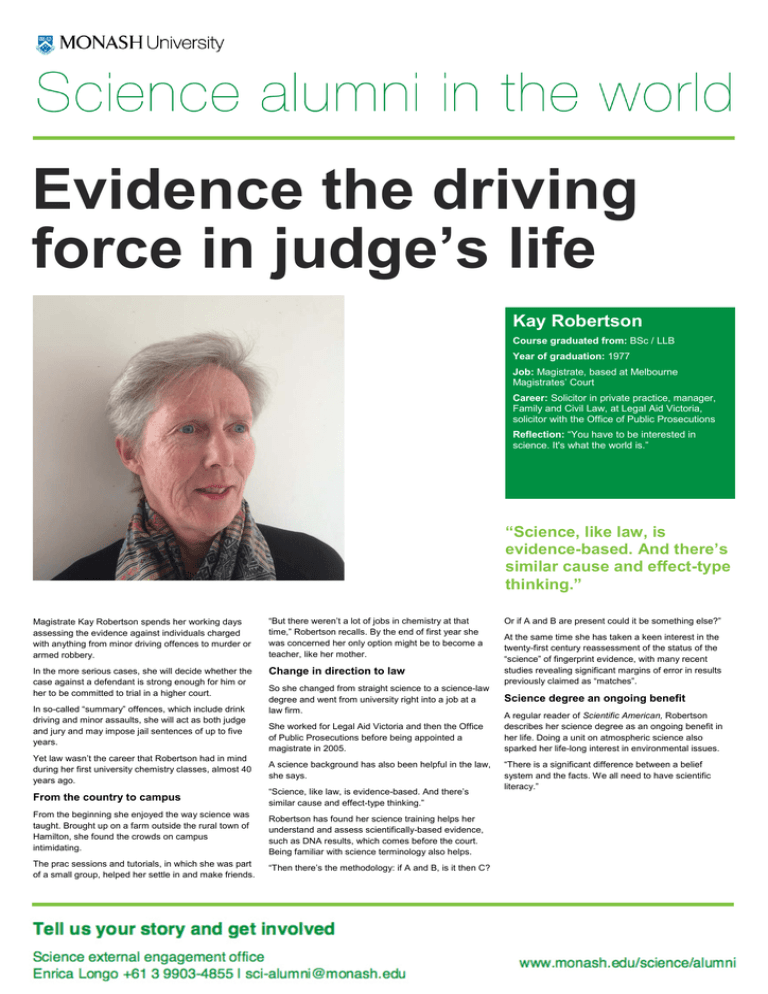
Evidence the driving force in judge’s life Kay Robertson Course graduated from: BSc / LLB Year of graduation: 1977 Job: Magistrate, based at Melbourne Magistrates’ Court Career: Solicitor in private practice, manager, Family and Civil Law, at Legal Aid Victoria, solicitor with the Office of Public Prosecutions Reflection: “You have to be interested in science. It's what the world is.” “Science, like law, is evidence-based. And there’s similar cause and effect-type thinking.” Magistrate Kay Robertson spends her working days assessing the evidence against individuals charged with anything from minor driving offences to murder or armed robbery. “But there weren’t a lot of jobs in chemistry at that time,” Robertson recalls. By the end of first year she was concerned her only option might be to become a teacher, like her mother. In the more serious cases, she will decide whether the case against a defendant is strong enough for him or her to be committed to trial in a higher court. Change in direction to law In so-called “summary” offences, which include drink driving and minor assaults, she will act as both judge and jury and may impose jail sentences of up to five years. So she changed from straight science to a science-law degree and went from university right into a job at a law firm. She worked for Legal Aid Victoria and then the Office of Public Prosecutions before being appointed a magistrate in 2005. Yet law wasn’t the career that Robertson had in mind during her first university chemistry classes, almost 40 years ago. A science background has also been helpful in the law, she says. From the country to campus “Science, like law, is evidence-based. And there’s similar cause and effect-type thinking.” From the beginning she enjoyed the way science was taught. Brought up on a farm outside the rural town of Hamilton, she found the crowds on campus intimidating. The prac sessions and tutorials, in which she was part of a small group, helped her settle in and make friends. Robertson has found her science training helps her understand and assess scientifically-based evidence, such as DNA results, which comes before the court. Being familiar with science terminology also helps. “Then there’s the methodology: if A and B, is it then C? Or if A and B are present could it be something else?” At the same time she has taken a keen interest in the twenty-first century reassessment of the status of the “science” of fingerprint evidence, with many recent studies revealing significant margins of error in results previously claimed as “matches”. Science degree an ongoing benefit A regular reader of Scientific American, Robertson describes her science degree as an ongoing benefit in her life. Doing a unit on atmospheric science also sparked her life-long interest in environmental issues. “There is a significant difference between a belief system and the facts. We all need to have scientific literacy.”
